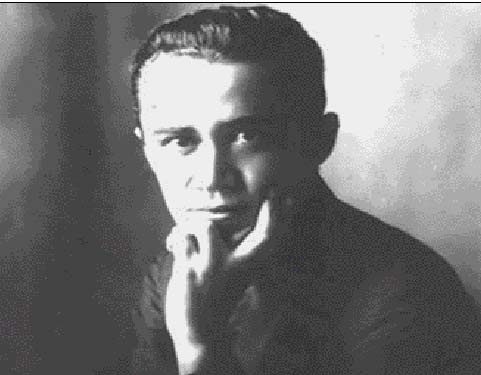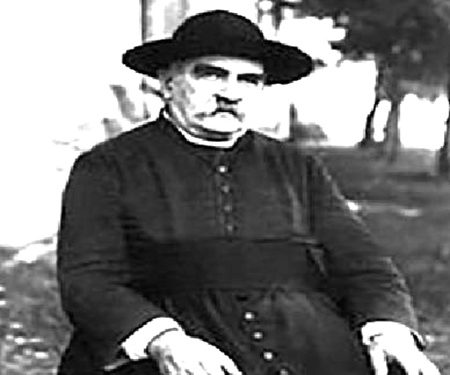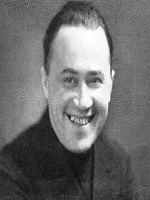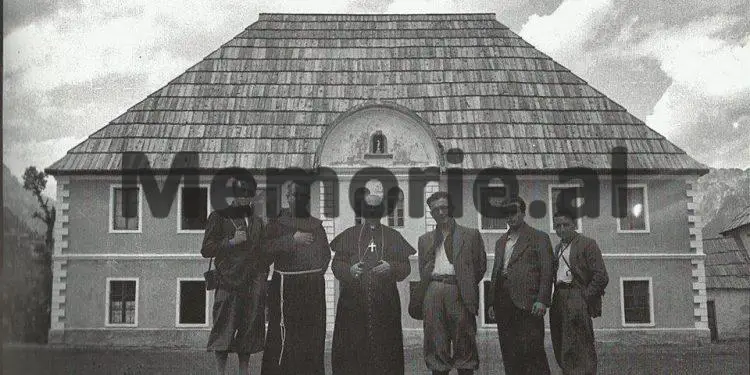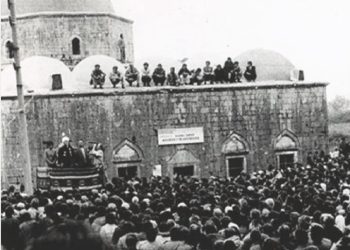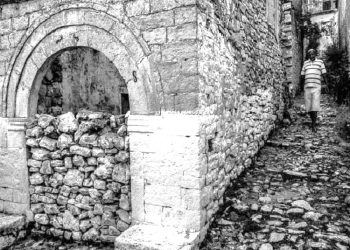By Kolec ÇEFA
Memorie.al / An inner, almost irresistible, tendency impelled Shantoja towards epistolary art where he clearly expressed that sincere Shantojan intimacy, full of artistic sparks, with cognitive, literary, and educational merits, where he often flashes some criticism, satire, or sarcasm for the society of the time and for the people of politics, illuminated with pleasant humor, laughs, and is exciting. In this epistolary the reader enjoys the author’s meditation and feelings, literary contribution, and reads about his troubled life like rarely anyone else, because he was a victim of fate, and more of a victim of political hostility and the petty things of the dictatorship. Unfortunately, his correspondence is uncollected, unknown, unresearched, and even results to be quite lost.
Therefore, we miss this correspondence full of longing for exile, full of desire to return to the homeland, full of green literary panoramas, of this rare stylist, who suffered and suffered quite a bit, even for his bread; troubled by rumors; tortured inhumanly; shot and still left without a grave. “A book of memories,” wrote Shantoja, “always has… the appearance of an autobiography.”
With a broken heart and with dead desires, he abandoned the office, fled the homeland, “I was forced to leave the homeland and the office”; he lived with the pain of the exile and with the hope of returning. The true vocation “I am and will die a priest,” and the burning love inspired him with living strength and steadfast hope to endure the suffering in a foreign land, to endure the oppression of the stranger, the longing for his beloved people. “I hoped that someday, or perhaps the time would come for me to return to my beloved homeland and to take up the religious service there, which I had been missing for so many years.”
He struggled to make ends meet, as he could not take up a parish without changing his citizenship, and he endured it without changing. (“An unemployed life is the most boring job there can be”). He asked Bishop Mjeda for permission to intervene with the King, to allow him to return to his homeland, or for compensation to issue documents abroad for Albania. He did not answer, but wrote: “I pray to God that that happy day may dawn soon, when I can return to my homeland among my brothers and, alongside my Archbishop, work for the good and prosperity of my homeland.”
When he arrived in Ithaca (La Motte), he added yeast to the dough of memories. He translated “Hermandi e Dorotea” and continued his activity for his parish and for national literature. The voice of the emigrant began to be heard again in “Kujtime ergimi”, in the memoirs “Kujtime franciscane” and in open, literary letters. It is enough to mention “Letër e hapun”, addressed to Fishta, (1932) published by Koliqi, who called it a “precious pearl”.
He lived a spoiled life between the seductive dream and the bitter reality and wrote: “Neither in heaven, nor on earth”; he experienced the lack of daily bread and the lack of social activity, remembering the verses of the immortal poet: “There is no greater pain than to remember the happy time, when you are in misery and in sorrow”. May no one have his fate!
Letter from Dom Lazarus of Saint John from Vienna to Bishop Mjeda
Vienna, 31.1.1928
Your Excellency and Beloved Bishop
In two months, it will be 3 years since I was forced to leave my homeland and the office I held there. The possibility of returning is becoming more difficult and distant for me by the day. As long as the socialist regime continues in Albania, I am afraid that I will not be able to return under any conditions and with any guarantees. I prefer to be on the streets rather than back where I know what awaits me. On the other hand, this life that I am leading is also very dangerous, both for the soul and for the body.
A longer war against Zog now seems completely pointless to me, especially when I consider who, in the event of our victory, will take over the country…! What a miserable lot we patriots have become. My disillusionments are so great and so deep-rooted that I am afraid that I will be driven out of politics altogether. I think with great fondness of the comfort and the salary that I enjoyed in Pulaj and in Sheldi. Your Excellency, you will probably have heard all sorts of news about my life here.
I do not come to confess to you with this letter, but I am telling Your Excellency that you will write to me as soon as possible, through the Italian consulate in Shkodra. When a D.N.T. has found a parish… I think I can also have this honor? Please do not try to fill my mind with the desire to return and make some other decision, because it is useless. In this case, if Your Excellency does not want to give me the necessary ecclesiastical documents to exercise my office there, I will be embarrassed, and I will go without them. Be sad for someone who has honored you, appreciated you, loved you and had you and that is you.
He kissed the ring with a pony
L.Shantoja
(AQSH, P.132/A, D.15, v.1928)
Letter from His Excellency Mjeda from Shkodra sent to Dom Lazër Shantoja in Vienna
Dom Lazër Shantoja in Vienna
Shkodra, 22.II.1928
Your Honor
I have received your letter written on 31.I.1928. I am writing to you to tell you that it has greatly missed me; and I was glad to hear that you are leaving politics; I am saddened by the news that you were going to America. No matter how much you write to me, do not try to convince me, otherwise, I cannot stop myself without expressing my opinion to you.
I am not telling you to come back now, because I know it is difficult for you, but I am telling you that, before you do it, weigh well the step you want to take. That is why I should have advised you that before you make up your mind, you should spend a day in a Jesuit house and do the exercises of the soul, praying to God, so that your mind will be enlightened to work as best you can.
I know that you love me, but I hope that you also believe that I have you at heart, therefore my advice, as a friend and as your leader, begs to have power to guide you. With this in mind, I am telling you that going to America seems completely out of place to me. There were no Catholic Albanians there, I feel like a third-rate and a loser, so why would you go so far?
Are you saying that you can’t find a job in the best cities of Europe? Yes, definitely. If you want to improve your singing in universities, I hope you find a place, but even if you want to return to your previous position as a servant of souls, the place can still find you without going so far. I am acquainted with the Bishop of Paritones (?) and I thought you would put me to work….! Memorie.al




